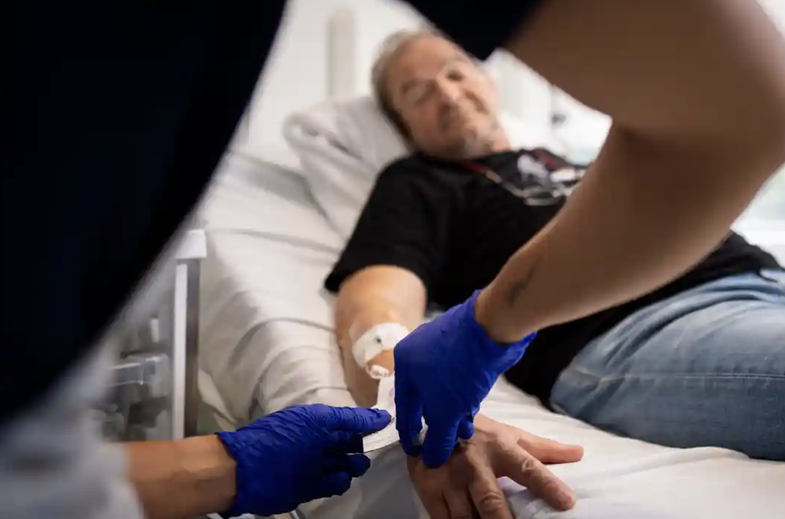
Doctors have begun testing the world's first mRNA lung cancer vaccine in patients, as experts say it has a breakthrough potential to save thousands of lives. Lung cancer is the world's leading cause of death. The number of dead people in the world is about 1.8 million. The survival rate for patients who have advanced forms of this disease is usually low.
Recently, experts are testing a new vaccine that instructs the body to identify and attack cancer cells and then prevent them from returning. Known as "BNT116", the vaccine is produced by BioNTech. The first phase clinical trial and human study has started in 34 research areas and in 7 countries in the world: United Kingdom, Germany, Hungary, Poland, Spain and Turkey.
In the United Kingdom, a patient received the first vaccine this week. In total, about 130 patients, who are affected by lung cancer at various stages, from the beginning to the advanced stages, will be registered to have the vaccination, along with the immunotherapy. The goal is to strengthen the immunity of a person with cancer, while leaving other healthy cells intact.
"We are now entering this very exciting new era of clinical trials of mRNA-based immunotherapy to investigate the treatment of lung cancer," said Professor Siow Ming Lee, consultant oncologist at University College Hospitals NHS Foundation Trust in London. (UCLH).
“It's simple to inject and you can pick out specific antigens on the cancer cell. This technology is the next big phase of cancer treatment," he added.
Janusz Racz, 67, from London, was the first person to get the vaccine in the UK. He was diagnosed with lung cancer in May this year and soon began chemotherapy and radiotherapy.
Racz received six consecutive injections at the National Institute for Health Research. Each dose contained compound RNA (polymeric molecule that is essential for most biological functions). The patient will receive the vaccine regularly, for 6 weeks in a row and then, 1 time in 3 weeks for a period of 54 weeks.
Doctors were optimistic about the treatment, saying they hoped the vaccine would stop the cancer from coming back.
"I have been in lung cancer research for 40 years. When I started in the 1990s, no one believed that chemotherapy worked," Lee said, continuing, "Now we know that about 20-30% [of patients] stay alive in stage 4 with immunotherapy, and we want to improve survival rates. We hope to move to phase 2, phase 3, and then hopefully become the standard of care around the world and save many lung cancer patients."





